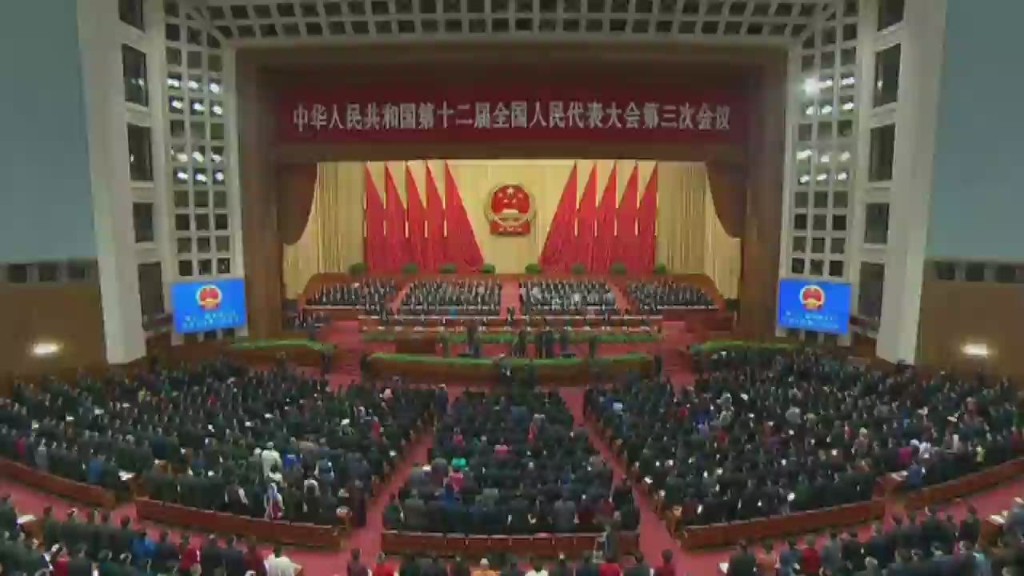
Three thousand delegates have gathered in Beijing to kick off China's annual rubber-stamp parliamentary meetings.
The National People's Congress is long on pomp and circumstance and short on legislative deliberation; while some voting ostensibly takes place, the Communist Party's proposals are always approved.
But economists are paying close attention nonetheless, hoping to learn something about Beijing's priorities for the coming year.
Here are three areas of particular importance:
1. How low can the economy go?
Beijing has released its economic growth targets for the coming year, with gross domestic product expansion pegged at 7%.
While this figure would make most other countries blush, it's actually very low when compared to the double-digit growth that China enjoyed for much of the past three decades.
Beijing isn't freaking out about 7% growth -- yet. Policymakers are growing accustomed to the idea that slower expansion is acceptable, so long as economic reforms are moving forward and the job market is stable.
"Policymakers seem increasingly comfortable with the idea that China is undergoing a structural transition to a 'new normal' of slower growth," wrote analysts at Capital Economics.
2. What's going on with reforms?
Beijing has been working to implement a laundry list of economic reforms.
Policymakers want state-owned enterprises to become more competitive, the yuan to further internationalize and local governments to reduce debt. They also want to reform pensions, the tax system and the financial sector.
Following through on these items, and gauging progress made since last year, should be a focal point during the National People's Congress.
3. Inconvenient truth about the environment
The environment is usually a topic of conversation at the meeting, but this year, the issue will be much closer to center stage.
That's thanks to a nearly two-hour documentary on air pollution called "Under the Dome" that has gone viral in China.
Since its publication last week, the video has been viewed millions of times and stirred ferocious debate across Chinese cyberspace.
China's energy sector is dominated by bloated state-run firms that frequently exert pressure to limit environment protections.
Will they now find themselves on the wrong end of a move to clean up the industry? After all, Chinese President Xi Jinping has declared blue skies a top priority for the country.
-- CNN's Steven Jiang contributed reporting.


